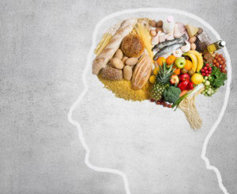Narconon Presents Tips For Dealing with Nutritional Deficiencies Caused by Addiction

Nutritional deficiencies result from substance abuse and addiction. Remedying those deficiencies markedly help the addict in recovery. The body is affected in a number of ways by substance abuse, including its metabolism (processing energy), organ function and mental well-being.
A Source of Harm
The U.S. National Library of Medicine National Institutes of Health serves as an online source of information through its Medline Plus site. According to Medline Plus, substance abuse harms the body in primarily two ways.
- The substance itself adversely affects the body.
- The addiction lifestyle and its negative factors minimally include irregular eating habits and a poor diet.
Proper nutrition can aid the body in its healing process following substance abuse. Energy is provided to the body through needed nutrients. Substances which the body needs to maintain health, healthy body organs and to fight-off infections are provided by needed nutrients.
An Overview of Different Drugs & Nutrition
Different drugs affect the body and its nutrition in a variety of ways, and ifferent nutrients can aid the body in recovery.
Opiates especially affect the gastrointestinal system. A high-fiber diet of vegetables, whole grains, peas and beans is recommended.
Medline Plus cites alcoholism as a leading cause of nutritional deficiency in the United States. Common alcohol-caused deficiencies include vitamin B1, vitamin B6, and folic acid. Korsakoff’s Syndrome, commonly referred to as “Wet Brain” stems from heavy alcohol use which depletes the body of thiamine (B1).
Alcohol use damages two major body organs vital to nutrition and metabolism—the liver and the pancreas. The function of the pancreas is to regulate blood sugar and the absorption of fat. The function of the liver is to remove harmful toxins.
Stimulant use and abuse (methamphetamine, crack, and cocaine) leads to poor nutrition and consequent weight loss. Excessive lack of sleep resulting from stimulant abuse can cause dehydration. Excessive weight loss from stimulant abuse may make returning to a normal diet more difficult.
Marijuana use and abuse can cause appetite increase. Long-term use may cause overweight and a need to reduce sugar, fat and total calories consumption.
Tips for Dealing with Nutritional Deficiencies
An overall improvement in the quality of diet and balanced nutrition goes far in improving mood and health. A person is less likely to start using alcohol or drugs again if he or she feels better physically—and mentally. A healthy diet and good nutrition can help a person in recovery to maintain his or her physical and mental well-being.
Narconon Arrowhead presents the following tips to deal with nutritional deficiencies caused by addiction:
- Adapt to a more nutritious diet (way of eating) and a healthier lifestyle in a way which works for you. Some will want to make greater chances more rapidly. Others will prefer gradual changes.
- Your daily routine and lifestyle should include regular mealtimes.
- Consume nutritious meals and snacks.
- Include more protein and dietary fiber in your diet.
- Include more complex carbohydrates: starchy vegetables (potatoes, green peas and corn); whole grain cereals and breads; and legumes (peanuts, peas, beans, lentils).
- During recovery, include high quality vitamin and mineral supplements. Basic vitamins are vitamins A, C, B-complex and Zinc. You may want to try liquid vitamins and liquid minerals, which are more easily assimilated.
- Avoid dehydration common during recovery from substance abuse by drinking plenty of fluids, especially water.
- Avoid “empty calories” with no nutrient value, such as sugar.
- Get some exercise every day.
- Get adequate sleep, and rest.
- Staying well-fed and well-rested will go far in helping your recovery.
Find others making good nutrition and a healthy lifestyle part of their recovery. Help each achieve recovery-oriented nutrition and health goals.


